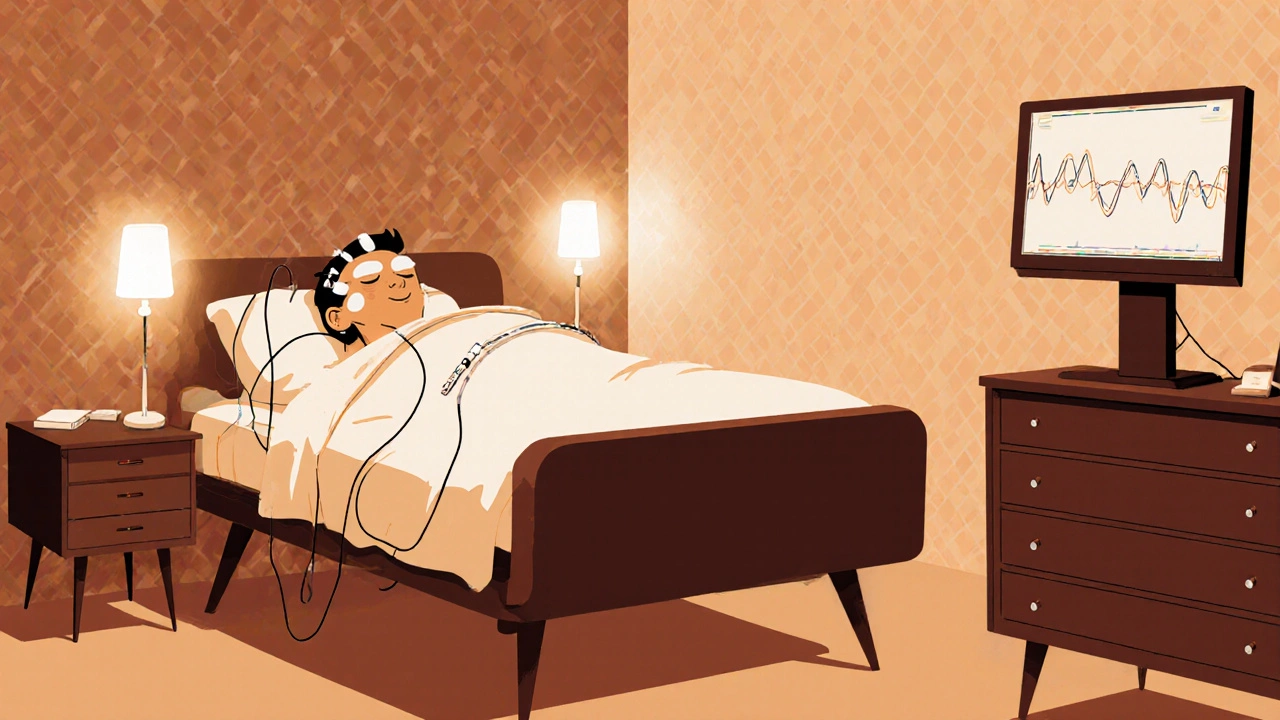Sleep Disorder Diagnosis: How to Identify and Understand Common Sleep Issues
When you can’t fall asleep, wake up too early, or feel exhausted even after eight hours in bed, it’s not just stress—it might be a sleep disorder diagnosis, a medical evaluation to identify underlying conditions disrupting normal sleep patterns. Also known as sleep medicine assessment, it’s not about counting sheep—it’s about spotting patterns that doctors use to tell the difference between bad habits and real health problems.
Many people think they have insomnia because they toss and turn, but insomnia, a persistent trouble falling or staying asleep despite opportunity is only one of many conditions. sleep apnea, a breathing disorder where airways collapse during sleep, causing repeated awakenings often goes undiagnosed because the person doesn’t remember waking up—they just feel wiped out all day. Then there’s restless legs syndrome, an irresistible urge to move the legs, usually at night, that makes sleep nearly impossible. These aren’t just annoyances; they’re medical issues that show up in blood tests, sleep studies, and doctor interviews. And if your body clock is off—like you’re wide awake at 3 a.m. but asleep at noon—you could have a circadian rhythm disorder, a misalignment between your internal clock and the outside world, which is common in shift workers or people with irregular schedules.
What makes sleep disorder diagnosis tricky is that symptoms overlap. Fatigue from sleep apnea looks like depression. Nighttime leg cramps might be mistaken for arthritis. Snoring isn’t always harmless—it’s often the first red flag for apnea. Doctors don’t just ask, "Do you sleep well?" They dig into your history: Do you wake up gasping? Do you move your legs uncontrollably? Do you fall asleep while watching TV or driving? They look at your meds, your weight, your alcohol use, even your bedtime routine. No single test gives you the answer. It’s a puzzle made of sleep logs, wearable trackers, and sometimes overnight monitoring in a lab.
You won’t find a magic pill that fixes everything without knowing what’s broken. That’s why understanding your own sleep pattern matters more than you think. If you’ve tried counting sheep, cutting caffeine, or buying a new mattress and nothing sticks, it’s not your fault—it’s probably not a lifestyle issue. It’s time for a proper sleep disorder diagnosis. Below, you’ll find real-world guides from people who’ve been there: how they recognized the signs, what tests they went through, and what actually helped. No fluff. No hype. Just what works.

Polysomnography: What to Expect During a Sleep Study and How Results Are Interpreted
Polysomnography is the gold standard sleep study used to diagnose sleep apnea, narcolepsy, and other sleep disorders. Learn what happens during the test, how results are interpreted, and why it's more accurate than home tests.
